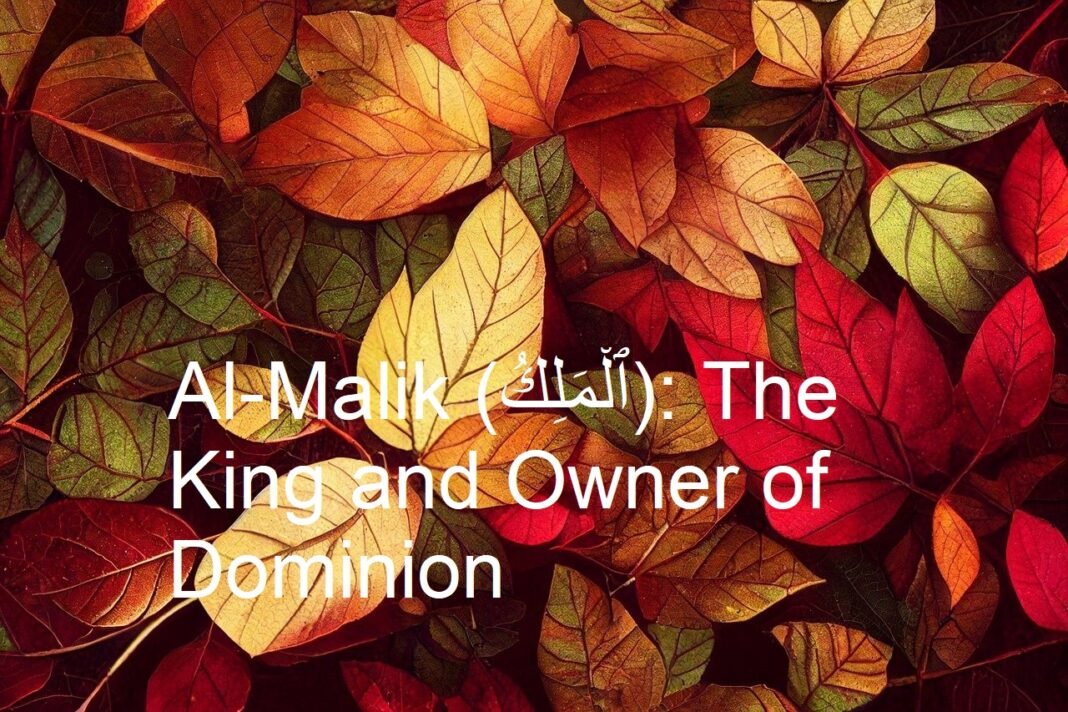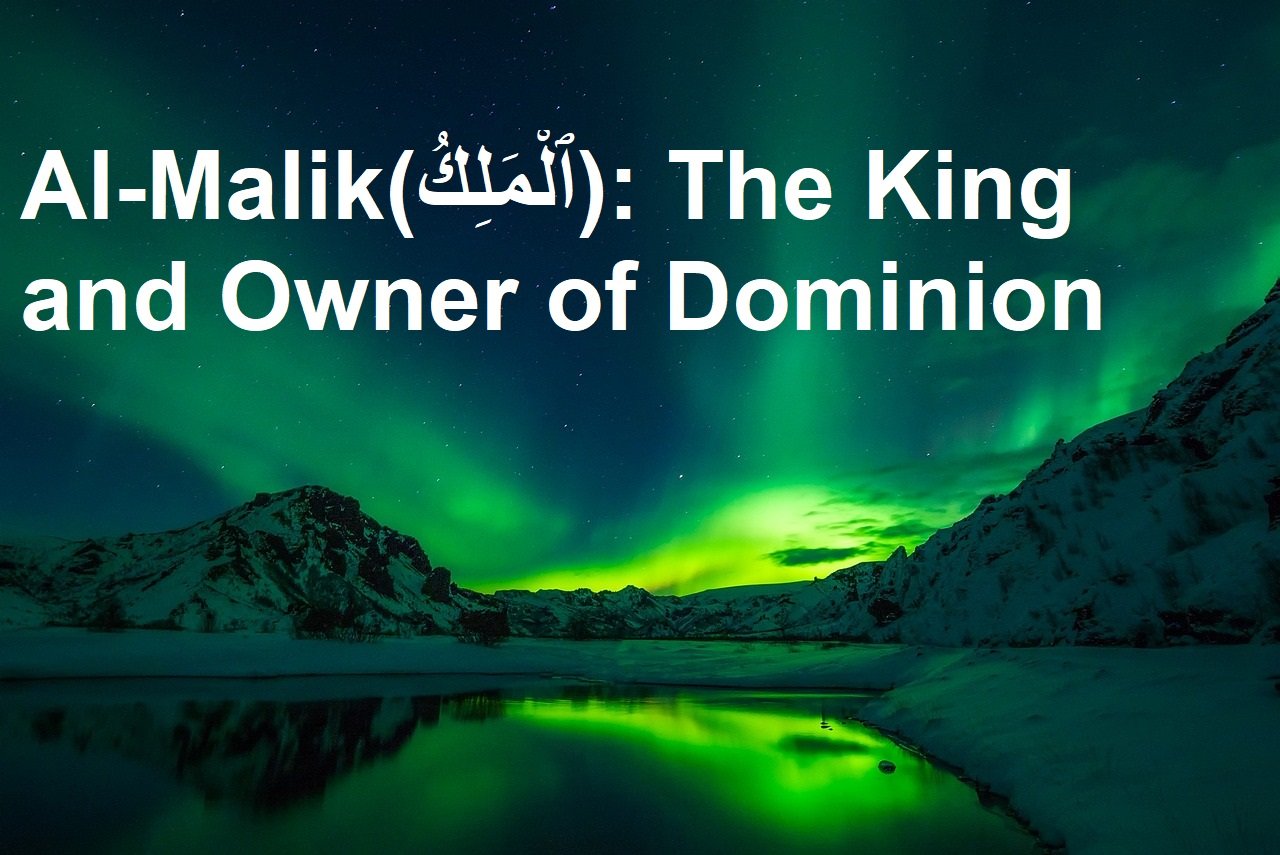Al-Malik (ٱلْمَلِكُ): The King and Owner of Dominion
In Islam, the concept of Allah encompasses numerous names and attributes, each conveying a unique facet of His infinite nature. Among these names is “Al-Malik,” which translates to “The King” or “The Owner of Dominion.” This name is profound in its implications, offering insights into Allah’s sovereignty, authority, and absolute control over all creation.
Meaning and Etymology
The term “Al-Malik” is derived from the Arabic root word “m-l-k,” which conveys the idea of ownership, kingship, and dominion. In Arabic, a “malik” refers to a king or ruler who possesses supreme authority over a territory or domain. When applied to Allah, the name Al-Malik signifies His unparalleled sovereignty and absolute dominion over the entire universe.
Theological Significance
The name Al-Malik holds deep theological significance in Islam, reflecting several key aspects of Allah’s nature:
-
Sovereignty: Allah is the ultimate sovereign, with complete and unrestricted authority over all creation. Unlike earthly kings whose dominion is limited in scope and duration, Allah’s kingship is absolute and eternal.
-
Ownership: As the Owner of Dominion, Allah possesses everything in the heavens and the earth. Every creature, object, and realm belongs to Him, and He alone has the right to dispose of them as He sees fit.
-
Absolute Control: Allah’s dominion is not subject to any limitations or constraints. He exercises full control over the universe, governing its affairs with wisdom, justice, and mercy. Nothing occurs in the cosmos without His knowledge and permission.
-
Unrivaled Authority: Allah’s authority transcends all others. He is the Supreme Judge, Lawgiver, and Legislator, and His decrees are final and unchallengeable. All beings, whether human or celestial, are subject to His command.
Quranic References
The Quran, Islam’s holy scripture, contains numerous references to Allah as Al-Malik. These verses serve to reinforce the concept of divine kingship and sovereignty. For example:
-
Surah Al-Jumu’ah (62:1): “Whatever is in the heavens and whatever is on the earth is exalting Allah, the Sovereign, the Pure, the Exalted in Might, the Wise.” This verse acknowledges Allah’s sovereignty over all creation and emphasizes His purity, might, and wisdom.
-
Surah Al-Mulk (67:1): “Blessed is He in whose hand is dominion, and He is over all things competent.” This verse highlights Allah’s ownership of dominion and His competence in managing all affairs.
-
Surah Al-Mu’minun (23:116): “So exalted is Allah, the Sovereign, the Truth; there is no deity except Him, Lord of the Noble Throne.” Here, Allah is described as the Sovereign and the Truth, emphasizing His absolute authority and lordship.
Implications for Believers
Understanding Allah as Al-Malik has profound implications for believers:
-
Humility: Recognizing Allah’s sovereignty fosters humility and awe in believers, reminding them of their dependence on Him and their limited understanding of His divine plan.
-
Submission: Believers are called to submit to Allah’s kingship and obey His commands willingly and wholeheartedly. Surrendering to His will brings peace and contentment to the heart.
-
Trust: Trusting in Allah as Al-Malik entails having faith in His wisdom and justice. Believers can find solace in the knowledge that He is in control of all things and that His decree is ultimately for their benefit.
-
Gratitude: Acknowledging Allah’s ownership of all blessings prompts believers to express gratitude for His abundant mercy and provision. Every gift, whether material or spiritual, is a manifestation of His benevolence.

















